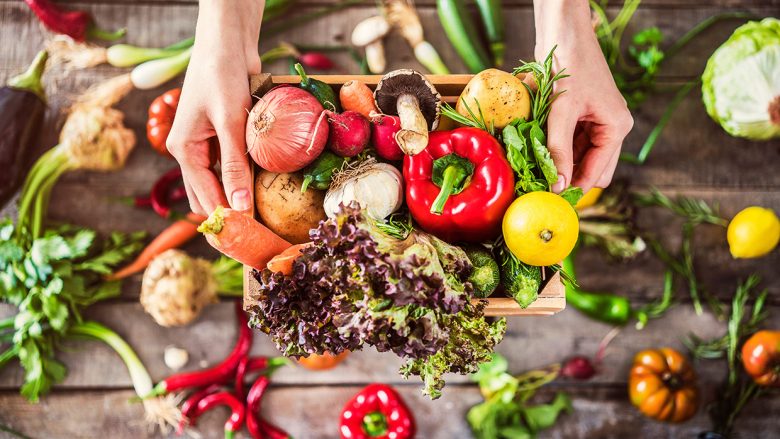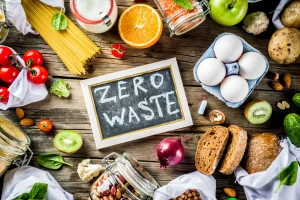Organic foods are grown and processed using natural methods, rather than synthetic chemicals, herbicides, and genetically modified organisms (GMOs). These foods often utilise natural fertilisers, crop rotation, and environmentally friendly farming practices to maintain healthy soil and reduce environmental impact. Fruits, vegetables, grains, dairy products, and meat are all examples of organic foods. They are grown according to strict regulations to ensure that plants are exposed to as few chemicals as possible. By buying organic foods, you are choosing to prioritise natural, healthy ingredients, which not only benefits your health but also supports environmentally friendly farming practices.
Health Benefits of Organic Foods
A major reason people choose organic foods is that they may be better for their health. Organic foods generally do not contain synthetic toxins that can accumulate in the body and pose long-term health risks. Studies have shown that organic foods may contain more antioxidants and essential nutrients that strengthen the immune system and improve overall health. Organic meat and dairy products typically contain more omega-3 fatty acids, which are good for the heart and brain, and are also higher in fat. Eating organic foods reduces exposure to harmful chemicals and provides higher-quality nutrition, leading to long-term health benefits.
The Environmental Impact of Organic Farming
Organic farming plays a crucial role in protecting the environment. Organic farms do not use synthetic pesticides and fertilisers, thus protecting local ecosystems and preventing soil and water pollution. Crop rotation, composting, and other natural soil amendments improve soil fertility and prevent soil degradation. Organic farming also provides habitats for beneficial insects, birds, and other animals, thus supporting ecosystems. Buying organic food supports these environmentally friendly practices, helps protect the environment, benefits future generations, conserves natural resources, and reduces carbon emissions. It is an environmentally friendly way to eat.
Reduced Chemical Exposure
Choosing organic food reduces your exposure to harmful chemicals commonly used in conventional farming. Pesticides, herbicides, and artificial additives remain in processed foods and non-organic fruits and vegetables. Long-term exposure to these chemicals is linked to various health problems, such as hormonal imbalances and an increased risk of chronic diseases. By choosing organic food, people can enjoy fresh, healthy food while simultaneously reducing their intake of potentially harmful chemicals. This choice is especially important for children, pregnant women, and certain groups who are more vulnerable to these chemicals.
Ethical and Environmentally Friendly Practices
Ethical farming is often associated with fair working conditions, humane animal welfare, and environmentally friendly production methods. Organic meat and cheese come from animals that are not regularly treated with growth hormones or antibiotics. This not only protects their health but also makes the food we eat healthier. Buying products from organic farms encourages responsible behaviour that benefits animals, workers, and farmers. People who buy organic food contribute to a system that values longevity, fair treatment, and transparency in food production.
The Taste and Quality of Organic Food
Many people believe that organic food tastes better and is of higher quality than food grown by other means. Food grown in nutrient-rich soil with low chemical levels generally has a more natural flavour, a deeper colour, and a better texture. In most cases, organic fruits and vegetables are harvested when fully ripe, which preserves their freshness and rich flavour. Organic dairy and meat products are generally of higher quality because the animals are raised and fed with more care. Organic food is not only better for you and the environment but also tastes better and is fresher, resulting in a more satisfying eating experience.
Making Organic Choices Accessible
While organic produce can be more expensive, there are ways to lower the price without sacrificing quality. By buying organic produce that is most susceptible to chemical damage, such as berries and leafy greens, you can reduce your chemical intake while keeping your budget in check. You can buy fresh, affordable organic produce at farmers markets, participate in community-supported agriculture programs, or start your small organic garden at home. Over time, gradually choosing organic produce can help you develop healthier eating habits and contribute to the sustainability of the food system.
Conclusion
Choosing organic produce is an effective way to improve your own health and keep the world healthy. Organic produce is more nutritious, contains fewer chemicals, and tastes better. It also supports agricultural practices that are better for the planet and for people. By making careful choices, everyone can contribute to creating a healthier world, protecting ecosystems, and promoting responsible agricultural production. Choosing organic produce every day is more than just a matter of taste; it’s a lifestyle that benefits your body, promotes ethical behaviour, and protects the environment for future generations.
FAQs
1. What are organic foods?
Organic foods are grown using natural farming methods, without the use of synthetic pesticides, herbicides, genetically modified organisms, or artificial additives.
2. Are organic foods healthier than conventional foods?
Organic foods may contain more vitamins and essential nutrients and are less exposed to harmful chemicals, which is beneficial for your overall health.
3. What are the benefits of organic farming for the planet?
Organic farming cleans the land and water, promotes biodiversity, and uses sustainable methods to protect natural resources.
4. What about organic meat and dairy products? Are they better for animals?
Yes, organic meat and cheese come from animals that are not often given antibiotics or growth hormones, meaning they are treated more humanely.
5. How can I buy healthier foods at a lower price?
Choose seasonal, locally grown organic foods; avoid foods that can expose you to chemicals; buy at farmers markets; or grow your own food.




